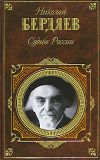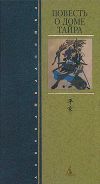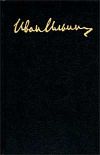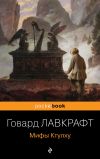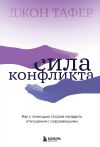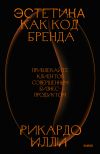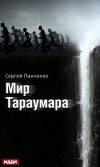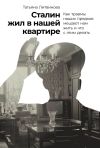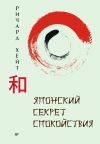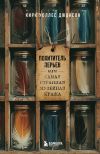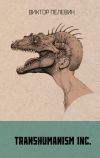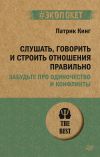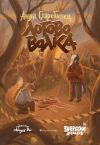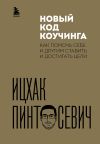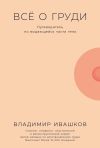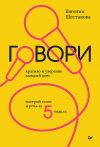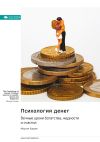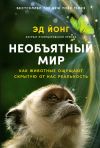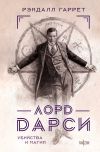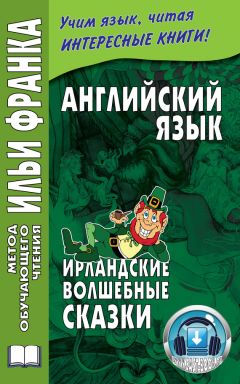
Автор книги: Оскар Уайльд
Жанр: Иностранные языки, Наука и Образование
Возрастные ограничения: +12
сообщить о неприемлемом содержимом
Текущая страница: 4 (всего у книги 16 страниц) [доступный отрывок для чтения: 5 страниц]

“My advice to you,” said the king of Lochlin, “is to keep the old key, for it fits the lock better, and you ’re more used to it.”
Then the king’s son stood up and said (тогда королевский сын встал и сказал), “I thank you, king of Lochlin, for a wise advice (я благодарю тебя, король Дании, за мудрый совет) and an honest word (и искренние слова; honest – честный; правдивый, прямой, искренний; word – слово; речь, слова; замечание, рекомендация, совет). This is my bride (вот моя невеста), the daughter of the Giant of Loch Léin (дочь великана озера Лох Лейн). I’ll have her (я возьму в жены ее; to have – иметь; взять в жены или мужья), and no other woman (и никакую другую женщину). Your daughter is my father’s guest (ваша дочь – гостья моего отца), and no worse, but better (и не хуже, а лучше = честь ей и хвала), for having come to a wedding in Erin (раз приехала на свадьбу в Ирландию).”

Then the king’s son stood up and said, “I thank you, king of Lochlin, for a wise advice and an honest word. This is my bride, the daughter of the Giant of Loch Léin. I’ll have her, and no other woman. Your daughter is my father’s guest, and no worse, but better, for having come to a wedding in Erin.”
The king’s son married Yellow Lily (королевский сын женился на Желтой Лилии), daughter of the Giant of Loch Léin (дочери великана озера Лох Лейн), the wedding lasted long (свадьба продолжалась долго), and all were happy (и все были счастливы).

The king’s son married Yellow Lily, daughter of the Giant of Loch Léin, the wedding lasted long, and all were happy.
The Three Daughters of King O’Hara
(Три дочери короля О’Хара)
There was a king in Desmond whose name was Coluath O’Hara (жил-был /когда-то/ король в Десмонде,[4]4
Десмонд – средневековое (118–1596) королевство на юго-западном побережье Ирландии.
[Закрыть] которого звали Колуат О’Хара: «был король в Десмонде, чье имя было Колуат О’Хара»), and he had three daughters (и было у него три дочери: «и он имел трех дочерей»). On a time (однажды: «в какое-то время») when the king was away from home (когда короля не было дома: «король был отсутствующим из дома»), the eldest daughter took a thought (старшей дочери пришла в голову мысль: «старшая дочь взяла мысль»; to take /took, taken/ – брать; thought – мышление; мысль, идея) that she’d like to be married (что она хотела бы выйти замуж: «быть замужем»; to like – любить что-л.; хотеть, желать).

There was a king in Desmond whose name was Coluath O’Hara, and he had three daughters. On a time when the king was away from home, the eldest daughter took a thought that she’d like to be married.
So she went up in the castle (поэтому она поднялась под крышу замка: «пошла наверх в замке»; to go /went, gone/), put on the cloak of darkness (надела плащ-невидимку: «плащ тьмы»; to put /put/ on; dark – темный; darkness – темнота, мрак, ночь; тьма) which her father had (который был у ее отца), and wished (и загадала /как желание/; to wish – желать, хотеть; загадывать желание) for the most beautiful man under the sun (самого красивого мужчину на земле: «под солнцем») as a husband for herself (в качестве супруга для себя = чтобы самый красивый мужчина на земле стал ей супругом).

So she went up in the castle, put on the cloak of darkness which her father had, and wished for the most beautiful man under the sun as a husband for herself.
She got her wish (ее желание исполнилось: «она получила ее желаемое»; to get /got/ – доставать, добывать; добиваться, получать; wish – желание, пожелание, стремление; желаемое, предмет желаний); for scarcely had she put off the cloak of darkness (так как, едва она сняла плащ-невидимку: «плащ тьмы»), when there came (как появился: «когда там пришел»; to come /came, come/), in a golden coach with four horses (в золотой карете, /запряженной/ четырьмя лошадьми: «с четырьмя лошадьми»), two black and two white (двумя черными и двумя белыми), the finest man (самый прекрасный мужчина; fine – утонченный, изящный; красивый, имеющий привлекательную внешность) she had ever laid eyes on (которого ей когда-либо доводилось видеть: «на которого она когда-либо положила глаза»; to lay /laid/), and took her away (и увез ее с собой: «забрал ее прочь»; to take /took, taken/ – брать; to take away – убирать, уносить, уводить).

She got her wish; for scarcely had she put off the cloak of darkness, when there came, in a golden coach with four horses, two black and two white, the finest man she had ever laid eyes on, and took her away.
When the second daughter saw (когда вторая дочь увидела; to see /saw, seen/) what had happened to her sister (что произошло с ее сестрой), she put on the cloak of darkness (она надела плащ-невидимку: «плащ тьмы»), and wished for the next best man in the world (и пожелала мужчину ненамного хуже: «следующего лучшего мужчину в мире»; next – следующий; best – лучший, наилучший; next best – почти не уступающий по качеству) as a husband (в качестве супруга).

When the second daughter saw what had happened to her sister, she put on the cloak of darkness, and wished for the next best man in the world as a husband.
She put off the cloak (она сняла плащ); and straightway there came (и сразу же появился: «там приехал»; straight – по прямой линии, прямо; прямо, непосредственно; straightway – немедленно, сразу, без промедлений), in a golden coach with four black horses (в золотой карете, /запряженной/ четырьмя черными лошадьми: «с четырьмя черными лошадьми»), a man nearly as good as the first (мужчина, почти столь же хороший, как и первый; near – близко, недалеко; /указывает на приближение к какому-л. качеству, состоянию и т. п./ почти, чуть не, едва не), and took her away (и увез ее с собой: «забрал ее прочь»).

She put off the cloak; and straightway there came, in a golden coach with four black horses, a man nearly as good as the first, and took her away.
The third sister put on the cloak (третья сестра надела тот же плащ), and wished for the best white dog in the world (и пожелала /себе/ самого лучшего белого пса во /всем/ мире).
Presently he came (/и/ вскоре пес появился: «он пришел»; at present – в настоящее время; presently – вскоре, немного времени спустя), with one man attending (с одним человеком сопровождающим /его/; to attend – посещать, присутствовать; сопровождать /высокопоставленное лицо/, быть в свите /короля и т. п./), in a golden coach and four snow-white horses (в золотой карете и с четырьмя белоснежными лошадьми; snow – снег; white – белый; snow-white – белоснежный, чисто белый), and took the youngest sister away (и увез /с собой/ младшую сестру: «забрал младшую сестру прочь»; young /younger, the youngest/ – молодой, юный; младший, молодой /о членах одной семьи/).

The third sister put on the cloak, and wished for the best white dog in the world.
Presently he came, with one man attending, in a golden coach and four snow-white horses, and took the youngest sister away.
When the king came home (когда король вернулся: «приехал» домой), the stable-boy told him (помощник конюха рассказал ему; stable – конюшня; boy – мальчик; stable-boy – помощник конюха) what had happened while he was gone (что произошло, пока его не было: «пока он был уехавшим»; to go /went, gone/ – идти, ходить; уходить, уезжать). He was enraged beyond measure (он был чрезвычайно разгневан: «взбешен сверх меры»; rage – ярость, гнев, бешенство; to enrage – приводить в ярость, в бешенство; beyond – за, по ту сторону; сверх, выше; measure – мера, система измерений; степень, предел, мера; beyond measure – чрезмерно, чрезвычайно) when he heard (когда он услышал; to hear /heard/ – слышать; услышать, узнать) that his youngest daughter had wished for a white dog (что его младшая дочь пожелала белого пса), and gone off with him (и уехала с ним; to go /went, gone/).

When the king came home, the stable-boy told him what had happened while he was gone. He was enraged beyond measure when he heard that his youngest daughter had wished for a white dog, and gone off with him.
When the first man brought his wife home (когда первый мужчина привел свою жену домой; to bring /brought/ – приносить; приводить) he asked (он спросил), “In what form will you have me in the daytime (в каком облике ты хочешь чтобы я был днем: «иметь меня днем»; form – форма, внешний вид; обличье), – as I am now in the daytime (как я сейчас, в дневное время), or as I am now at night (или какой я теперь ночью)?”
“As you are now in the daytime (таким как ты сейчас, в дневное время).”
So the first sister had her husband as a man in the daytime (и вот, у первой сестры муж был человеком днем: «итак первая сестра имела мужа в качестве человека в дневное время»); but at night he was a seal (а ночью он был тюленем).

When the first man brought his wife home he asked, “In what form will you have me in the daytime, – as I am now in the daytime, or as I am now at night?”
“As you are now in the daytime.”
So the first sister had her husband as a man in the daytime; but at night he was a seal.
The second man put the same question to the middle sister (второй мужчина задал тот же самый вопрос средней сестре; to put /put/ – класть, ставить, положить; задавать, ставить /вопрос/), and got the same answer (и получил тот же самый ответ; to get /got/); so the second sister had her husband in the same form as the first (так что у второй сестры муж был в том же облике, что и у первой; form – форма, внешний вид; обличье).

The second man put the same question to the middle sister, and got the same answer; so the second sister had her husband in the same form as the first.
When the third sister came to where the white dog lived (когда третья сестра приехала туда, где жил белый пес), he asked her (он спросил у нее), “How will you have me to be in the daytime (каким ты хочешь чтобы я был днем), as I am now in the day (каким я сейчас бываю днем), or as I am now at night (или каким я бываю по ночам)?”
“As you are now in the day (каким ты сейчас бываешь днем).”
So the white dog was a dog in the daytime (итак белый пес был псом днем), but the most beautiful of men at night (а ночью – самым красивым из мужчин).

When the third sister came to where the white dog lived, he asked her, “How will you have me to be in the daytime, as I am now in the day, or as I am now at night?”
“As you are now in the day.”
So the white dog was a dog in the daytime, but the most beautiful of men at night.
After a time the third sister had a son (спустя какое-то время третья сестра родила сына; after – после; спустя; to have – иметь; получать; родить, приносить /потомство/, иметь /детей/); and one day (и /вот/ однажды: «/в/ один день»), when her husband was going out to hunt (когда ее муж собирался на охоту: «выходил наружу, чтобы поохотиться»), he warned her (он предупредил ее) that if anything should happen to the child (что если что-нибудь случится: «должно случиться» с ребенком), not to shed a tear on that account (/она не должна/ проронить из-за этого ни одной слезы: «не пролить ни одной слезы по тому поводу»; account – счет; причина, основание; on this account – по этой причине).

After a time the third sister had a son; and one day, when her husband was going out to hunt, he warned her that if anything should happen to the child, not to shed a tear on that account.
While he was gone (пока его не было: «он был ушедшим»; to go /went, gone/), a great gray crow that used to haunt the place (огромная серая ворона, которая имела обыкновение часто посещать это место; to haunt – часто посещать) came and carried the child away (прилетела и унесла ребенка) when it was a week old (когда ему была неделя отроду; old – старый; такого-то возраста, стольких-то лет).
Remembering the warning (помня предупреждение /мужа/), she shed not a tear for the loss (она не пролила ни единой слезы из-за этой потери; to shed /shed/).

While he was gone, a great gray crow that used to haunt the place came and carried the child away when it was a week old.
Remembering the warning, she shed not a tear for the loss.
All went on as before (все шло, как и прежде; to go /went, gone/ on – идти дальше, продолжать путь; продолжаться) till another son was born (пока /не/ родился: «был рожден» другой сын; to bear /bore, born/ – носить, переносить, перевозить; рождать, производить на свет). The husband used to go hunting every day (муж обычно ходил на охоту каждый день), and again he said (и снова он сказал) she must not shed a tear if anything happened (/что/ она не должна = что ей нельзя пролить ни единой слезы, если что-нибудь случится).
When the child was a week old (когда ребенку была неделя отроду) a great gray crow came and bore him away (большая серая ворона прилетела и унесла его прочь; to bear /bore, born/ – носить, переносить, перевозить); but the mother did not cry (но мать не заплакала; to cry – кричать, орать; плакать) or drop a tear (и не проронила ни единой слезы: «или уронила слезу»; drop – капля; слезинка, капелька крови, пота; to drop – капать, стекать каплями; капать, выпускать по капле).

All went on as before till another son was born. The husband used to go hunting every day, and again he said she must not shed a tear if anything happened.
When the child was a week old a great gray crow came and bore him away; but the mother did not cry or drop a tear.
All went well till a daughter was born (все шло хорошо, пока не родилась: «была рождена» дочь). When she was a week old (когда ей была неделя отроду; old – старый; такого-то возраста, стольких-то лет) a great gray crow came and swept her away (большая серая ворона прилетела и похитила ее: «унесла ее»; to sweep /swept/ – мести, подметать; нести, мчать). This time the mother dropped one tear on a handkerchief (на этот раз мать проронила одну слезу на платок; time – время; раз, случай), which she took out of her pocket (который она достала из своего кармана; to take /took, taken/), and then put back again (а затем снова положила обратно; back – назад, обратно).

All went well till a daughter was born. When she was a week old a great gray crow came and swept her away. This time the mother dropped one tear on a handkerchief, which she took out of her pocket, and then put back again.
When the husband came home from hunting (когда муж вернулся: «пришел» домой с охоты) and heard what the crow had done (и услышал, что сделала ворона; to do /did, done/), he asked the wife (он спросил свою жену), “Have you shed tears this time (ты пролила слезы на этот раз; time – время; раз, случай)?”
“I have dropped one tear (я уронила одну слезу; to drop – капать, стекать каплями; капать, выпускать по капле),” said she.
Then he was very angry (тогда он очень рассердился: «был очень сердит»; anger – гнев, злость, ярость; раздражение); for he knew (потому что он знал; to know /knew, known/) what harm she had done (какой вред она причинила: «сделала»; to do /did, done/) by dropping that one tear (проронив ту одну слезу).

When the husband came home from hunting and heard what the crow had done, he asked the wife, “Have you shed tears this time?”
“I have dropped one tear,” said she.
Then he was very angry; for he knew what harm she had done by dropping that one tear.
Soon after (вскоре после /этого/) their father invited the three sisters to visit him (их отец пригласил трех сестер навестить его) and be present at a great feast in their honor (и присутствовать: «быть присутствующими» на грандиозном пире в их честь; great – большой, огромный; пышный, внушительный; honor – честь, благородство; почет, слава, честь). They sent messages (они отправили послания; to send /sent/), each from her own place (каждая из своего собственного дома; place – место; дом, жилище, загородный дом), that they would come (что они приедут).

Soon after their father invited the three sisters to visit him and be present at a great feast in their honor. They sent messages, each from her own place, that they would come.
The king was very glad at the prospect of seeing his children (король был очень рад возможности: «перспективе» увидеть своих детей; prospect – вид, панорама; перспектива, виды, надежда, планы на будущее); but the queen was grieved (но королева была опечалена), and thought it a great disgrace (и думала, какое великое бесчестье /в том/; to think /thought/; great – большой, огромный; great – большой, огромный, громадный; большой, сильный, колоссальный, огромный /о чувствах, состояниях, свойствах и т. п./) that her youngest daughter had no one (что у ее младшей дочери не было никого; young – молодой, юный; младший, молодой /о членах одной семьи/) to come home with her (кто мог бы сопровождать ее домой: «чтобы прийти домой с ней») but a white dog (кроме белого пса).

The king was very glad at the prospect of seeing his children; but the queen was grieved, and thought it a great disgrace that her youngest daughter had no one to come home with her but a white dog.
The white dog was in dread (белый пес очень боялся того: «был в ужасе»; dread – /благоговейный/ страх, ужас; to be in dread of smth. – жить в постоянном страхе чего-л.) that the king wouldn’t leave him inside with the company (что король не оставит его в замке: «внутри» со /всеми/ гостями; to leave – уходить, уезжать; оставлять; company – общество, компания; гости, общество), but would drive him from the castle to the yard (а прогонит его из замка во двор), and that the dogs outside (и что дворовые собаки: «собаки снаружи /замка/») wouldn’t leave a patch of skin on his back (не оставят на нем живого места: «не оставят клочка меха на его спине»; to leave – уходить, уезжать; оставлять; patch – заплата; клочок, лоскут; skin – кожа; кожа, шкура, мех животного), but would tear the life out of him (и загрызут до смерти: «а вырвут жизнь из него»; to tear – разрывать, рвать; выдергивать, вырывать, выхватывать, отнимать).

The white dog was in dread that the king wouldn’t leave him inside with the company, but would drive him from the castle to the yard, and that the dogs outside wouldn’t leave a patch of skin on his back, but would tear the life out of him.
The youngest daughter comforted him (младшая дочь успокоила его). “There is no danger to you (для тебя нет никакой опасности),” said she, “for wherever I am (так как, где бы я ни была), you’ll be (ты будешь /тоже там/), and wherever you go (и куда бы ты ни пошел), I’ll follow (я последую /за тобой/) and take care of you (и позабочусь: «возьму заботу» о тебе).”

The youngest daughter comforted him. “There is no danger to you,” said she, “for wherever I am, you’ll be, and wherever you go, I’ll follow and take care of you.”
When all was ready for the feast at the castle (когда все было готово для пира в замке), and the company were assembled (и гости собрались: «были собраны»; company – общество, компания; гости, общество; to assemble – созывать; собираться), the king was for banishing the white dog (король был за то, чтобы выгнать белого пса: «за изгнание белого пса»; to banish – изгонять, подвергать изгнанию; прогонять, выгонять, выдворять); but the youngest daughter would not listen to her father (но младшая дочь и слышать не хотела своего отца), – would not let the white dog out of her sight (не хотела выпускать белого пса из виду; to let /let/ – позволять; пускать; выпускать; sight – зрение; поле зрения, предел видимости), but kept him near her at the feast (но держала его рядом с собой на пиру; to keep /kept/), and divided with him the food (и разделяла с ним еду) that came to herself (которая подавалась ей самой; to come /came, come/ – приходить, идти; доставаться).

When all was ready for the feast at the castle, and the company were assembled, the king was for banishing the white dog; but the youngest daughter would not listen to her father, – would not let the white dog out of her sight, but kept him near her at the feast, and divided with him the food that came to herself.
When the feast was over (когда пир закончился: «был окончен»), and all the guests had gone (и все гости ушли; to go /went, gone/), the three sisters went to their own rooms in the castle (три сестры пошли в свои собственные комнаты в замке).

When the feast was over, and all the guests had gone, the three sisters went to their own rooms in the castle.
Late in the evening (поздно вечером) the queen took the cook with her (королева взяла с собой кухарку; to take /took, taken/), and stole in to see what was in her daughters’ rooms (и крадучись пошла посмотреть, что было в комнатах ее дочерей; to steal /stole, stolen/ – воровать, красть; красться, прокрадываться, скользнуть /куда-л./). They were all asleep at the time (они все спали: «были спящими» в это время). What should she see by the side of her youngest daughter (и кого же она увидела рядом со своей младшей дочерью; side – сторона, бок; место рядом; by the side of smb. – рядом с кем-л.) but the most beautiful man (как не самого красивого мужчину) she had ever laid eyes on (которого она когда-либо видела: «на которого она когда-либо положила глаза»; to lay /laid/).

Late in the evening the queen took the cook with her, and stole in to see what was in her daughters’ rooms. They were all asleep at the time. What should she see by the side of her youngest daughter but the most beautiful man she had ever laid eyes on.
Then she went to where the other two daughters were sleeping (затем она пошла туда, где спали две другие дочери); and there (и там), instead of the two men who brought them to the feast (вместо двух мужчин, которые привели их на пир; to bring /brought/ – приносить; приводить /с собой/), were two seals, fast asleep (были два тюленя, крепко спящие).

Then she went to where the other two daughters were sleeping; and there, instead of the two men who brought them to the feast, were two seals, fast asleep.
The queen was greatly troubled (королева была очень обеспокоена; trouble – беспокойство, волнение, тревога; to trouble – тревожить, волновать, расстраивать; troubled – беспокойный, встревоженный) at the sight of the seals (при виде /этих/ двух тюленей; sight – зрение; поле зрения, предел видимости). When she and the cook were returning (когда она и кухарка возвращались обратно), they came upon the skin of the white dog (они наткнулись на шкуру белого пса; to come /came, come/ upon smth. – натолкнуться на что-л., случайно встретиться с чем-л.; skin – кожа; кожа, шкура, мех животного). She caught it up (она подхватила ее; to catch /caught/ – поймать, схватить) as she went (когда шла = на ходу), and threw it into the kitchen fire (и бросила ее в кухонную печь; to throw /threw, thrown/; fire – огонь; топка, печь, камин).

The queen was greatly troubled at the sight of the seals. When she and the cook were returning, they came upon the skin of the white dog. She caught it up as she went, and threw it into the kitchen fire.
The skin was not five minutes in the fire (шкура не пробыла и пяти минут в огне) when it gave a crack (как она издала такой треск; to give /gave, given/ – давать; выражает единичный акт или кратковременное действие, соответствующее значению существительного; crack – треск) that woke not only all in the castle (который разбудил не только всех в замке; to wake /woke, woken/ – просыпаться; будить), but all in the country for miles around (но и всех за пределами замка на много миль вокруг: «но всех в сельской местности на мили вокруг»; country – страна; деревня, сельская местность, провинция).
The husband of the youngest daughter sprang up (муж младшей дочери вскочил /на ноги/; to spring /sprang, sprung/ – прыгать, скакать; вскакивать). He was very angry (он был очень сердит) and very sorry (и очень огорчен; sorry – огорченный, сожалеющий; to be sorry – жалеть, сожалеть), and said (и сказал),

The skin was not five minutes in the fire when it gave a crack that woke not only all in the castle, but all in the country for miles around.
The husband of the youngest daughter sprang up. He was very angry and very sorry, and said,
“If I had been able to spend three nights with you (если бы я смог: «был способен» провести три ночи с тобой; to spend – тратить, растрачивать; проводить /время/) under your father’s roof (в доме твоего отца: «под крышей твоего отца»; roof – крыша, кровля; кров; under one’s roof – в доме, под крышей), I should have got back my own form again for good (я бы вновь вернул свое собственное обличие /уже/ навсегда; to get /got/ back – вернуться; получить назад; form – форма, внешний вид; обличье; good – добро, польза; for good – навсегда, окончательно), and could have been a man (и мог бы быть мужчиной) both in the day and the night (как днем, так и ночью; both… and – не только… но и, как… так и); but now I must go (а теперь я должен уйти).”

“If I had been able to spend three nights with you under your father’s roof, I should have got back my own form again for good, and could have been a man both in the day and the night; but now I must go.”
He rose from the bed (он поднялся с кровати; to rise /rose, risen/ – вставать /на ноги/, подниматься), ran out of the castle (выбежал из замка; to run /ran, run/), and away he went (и он пошел/побежал прочь) as fast as ever his two legs could carry him (так быстро, как только ноги: «две его ноги» могли нести его), overtaking the one before him (догоняя того, /кто был/ перед ним), and leaving the one behind (и оставляя /этого человека/ позади; to leave – уходить, уезжать; оставлять). He was this way all that night and the next day (так он шел всю ту ночь и следующий день; way – путь, дорога; движение вперед, ход); but he couldn’t leave the wife (но он не мог оторваться от жены: «покинуть жену»; to leave – уходить, уезжать; покидать, бросать), for she followed from the castle (потому что она следовала /за ним/ от /самого/ замка), was after him (спешила за ним: «была в погоне за ним»; after – после; указывает на цель или направление поисков: в погоне, разыскивая) in the night and the day too (и днем и ночью: «ночью и днем тоже»), and never lost sight of him (ни разу не потеряв его из виду; never – никогда; ни разу; to lose /lost/ – терять; sight – зрение; вид; to lose sight of – потерять из виду).

He rose from the bed, ran out of the castle, and away he went as fast as ever his two legs could carry him, overtaking the one before him, and leaving the one behind. He was this way all that night and the next day; but he couldn’t leave the wife, for she followed from the castle, was after him in the night and the day too, and never lost sight of him.
In the afternoon he turned (днем он обернулся; noon – полдень; afternoon – время после полудня), and told her to go back to her father (и велел ей возвращаться к своему отцу: «идти обратно к ее отцу»; to tell /told/ – рассказывать; велеть, приказывать); but she would not listen to him (но она и слушать его не хотела). At nightfall they came to the first house (с наступлением вечера они подошли к первому дому; night – ночь; вечер; fall – падение; nightfall – наступление вечера; сумерки, вечер; to come /came, come/) they had seen since leaving the castle (который они увидели с тех пор, как покинули замок: «со /времени/ оставления замка»; to see /saw, seen/). He turned and said (он повернулся и сказал),
“Do you go inside (заходи внутрь) and stay in this house till morning (и оставайся в этом доме до утра; to stay – оставаться, не уходить; останавливаться, гостить); I’ll pass the night outside (я проведу ночь на улице: «снаружи»; to pass – идти, проходить; проводить /время, день и т. п./) where I am (здесь: «где я есть /сейчас/»).”

In the afternoon he turned, and told her to go back to her father; but she would not listen to him. At nightfall they came to the first house they had seen since leaving the castle. He turned and said,
“Do you go inside and stay in this house till morning; I’ll pass the night outside where I am.”
The wife went in (жена вошла в /дом/; to go /went, gone/). The woman of the house rose up (хозяйка дома поднялась /ей навстречу/; woman – женщина; house – дом; woman of the house – хозяйка дома; to rise /rose, risen/ – вставать /на ноги/, подниматься), gave her a pleasant welcome (радушно приветствовала ее; to give /gave, given/ – давать; уделять /внимание/; pleasant – приятный, милый, славный; welcome – прием гостя, гостеприимство), and put a good supper before her (и поставила перед ней обильный ужин; to put /put/; good – хороший; достаточный, обильный, изрядный). She was not long in the house (она не долго пробыла в доме) when a little boy came to her knee (когда какой-то маленький мальчик подошел к ее колену; little – маленький, небольшой; маленький /по возрасту/, младший) and called her “Mother” (и назвал ее мамой; to call – звать; называть).
The woman of the house told the child to go back to his place (хозяйка дома велела ребенку вернуться к себе: «пойти назад на свое место»; to tell /told/ – рассказывать; велеть, приказывать), and not to come out again (и больше не выходить: «и не выходить снова»).

The wife went in. The woman of the house rose up, gave her a pleasant welcome, and put a good supper before her. She was not long in the house when a little boy came to her knee and called her “Mother.”
The woman of the house told the child to go back to his place, and not to come out again.
“Here are a pair of scissors (вот /тебе/ ножницы: «здесь есть пара ножниц»),” said the woman of the house to the king’s daughter (сказала хозяйка дома королевской дочери), “and they will serve you well (и они сослужат тебе хорошую службу: «послужат тебе хорошо»; to serve – служить; быть полезным, оказывать пользу, содействие). Whatever ragged people you see (когда увидишь каких-нибудь людей в лохмотьях: «каких бы оборванных людей ты ни увидела»; rag – тряпка, лоскут; отрепья, лохмотья; ragged – рваный, потрепанный; оборванный, в лохмотьях), if you cut a piece off their rags (если ты отрежешь кусочек от их изношенной одежды), that moment they will have new clothes of cloth of gold (в тот же момент они получат: «будут иметь» новую одежду из золотой парчи: «ткани из золота»).”

“Here are a pair of scissors,” said the woman of the house to the king’s daughter, “and they will serve you well. Whatever ragged people you see, if you cut a piece off their rags, that moment they will have new clothes of cloth of gold.”
She stayed that night (она переночевала /в том доме/: «она осталась /гостить/ в ту ночь»), for she had good welcome (потому что ее радушно приняли: «она имела хороший прием»; good – хороший; добрый, доброжелательный). Next morning when she went out (на следующее утро, когда она вышла /на улицу/), her husband said (ее муж сказал), “You’d better go home now to your father (ты бы лучше сейчас /же/ пошла домой, к своему отцу).”
Правообладателям!
Данное произведение размещено по согласованию с ООО "ЛитРес" (20% исходного текста). Если размещение книги нарушает чьи-либо права, то сообщите об этом.Читателям!
Оплатили, но не знаете что делать дальше?













